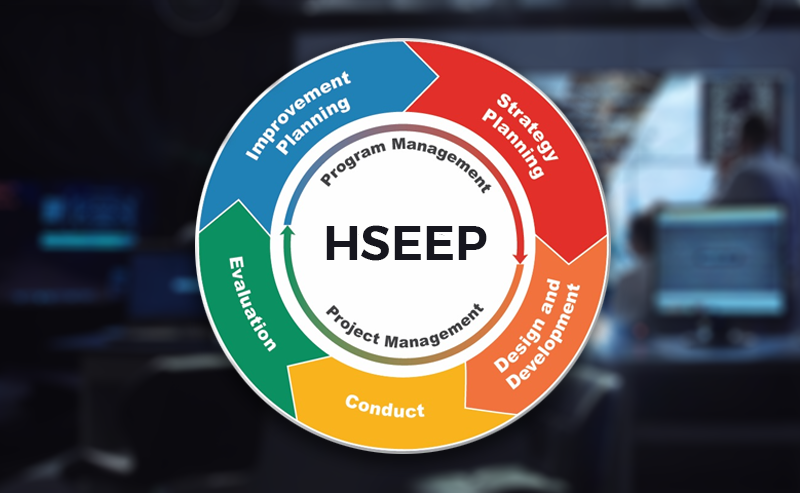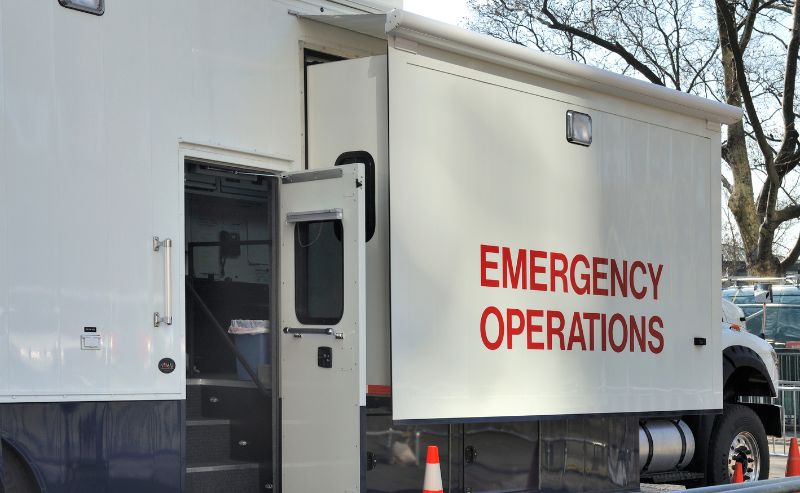HSEEP. If you’ve never heard of it, the acronym stands for the Homeland Security Exercise and Evaluation Program. It’s essentially FEMA’s set of guiding principles for emergency management’s exercise programs. And, it’s based on six fundamental concepts for the management and execution of exercise programs. These concepts are/have:
- Guided by Elected and Appointed Officials – Provides overarching guidance and direction for the exercise and evaluation program, as well as specific intent for individual exercises.
- Capability-based and Objective-Driven – Means exercises focus on assessing participant’s knowledge of plans, processes and procedures against the 32 core capabilities.
- A Progressive Planning Approach – Aligns with a common set of exercise program priorities and objectives with an increasing level of complexity over time.
- Whole Community Integration – Encourages exercise planners, where appropriate, to engage the whole community throughout exercise program management, design and development, conduct, evaluation, and improvement planning.
- Informed by Risk – Associates all-hazards impacts, helping organizations identify priorities, objectives, and core capabilities to be evaluated through exercises.
- A Common Methodology – Enables organizations of divergent sizes, geographies, and capabilities to have a shared understanding of exercises from start to finish; also fosters exercise-related interoperability and collaboration.
As expected, FEMA believes exercises are a key component of overall national preparedness. The Agency’s website says, “they [exercises] provide elected and appointed officials and stakeholders from across the whole community with the opportunity to shape planning, assess and validate capabilities, and address areas for improvement.”
In other words, HSEEP will benefit everyone, whether you’re from the public or private sector, conducting activities on a small or large scale, or participating in discussion- or operations-based exercises like the following:
Discussion-based Exercises
○ Seminars – A training environment to help participants understand a plan, policy or procedure in a non-stressful environment.
○ Workshops – Similar to a seminar, except the outcome will provide participants with a product such as an updated plan, an exercise schedule, etc.
○ Tabletop Exercises – Simple to complex opportunity to discuss participants’ knowledge and questions of roles, responsibilities and other functions of their jurisdictions plans, policies and procedures in a no-fault, non-stressful environment.
○ Games – Not as common, but participants ‘game’ different situations in a semi-stressful environment using software.
Operations-based Exercises
○ Drills – This type of exercise validates a single function of the participants. It usually only lasts a couple hours and participants physically demonstrate a function to show knowledge of a process or procedure.
○ Functional Exercises – In this exercise, the stress level is intended to be higher, yet controlled, so that participants start to understand how they may react under pressure to an all-hazards event. A simulation center will call and talk to participants as if an event was actually happening. This allows evaluators to capture strengths and gaps as they relate to the objectives of the exercise.
○ Full-scale Exercises – As the most stressful and close to real-world event/exercise, participants are engaged in moving people and things to staged places in real time to meet the exercise objectives.
To help folks along, HSEEP doctrine is chocked full of advice, best practices and guidelines across all five mission areas—prevention, prevention, protection, mitigation, response and recovery. Familiarize yourself with these recommendations, and more importantly, put them into practice. Through regularly scheduled and a meaningful exercise program, your organization will be far better prepared for what may ultimately lie ahead.
Also, consider the use of online planning software like that provided by BOLDplanning. Such tools make the writing and updating of Emergency Operations Plans (EOPs), Continuity of Operations/Government Plans (COOPs/COGs) and Business Continuity Plans (BCPs) considerably easier and far more efficient. There’s even a tool to support Hazard Mitigation Plans (HMPs), which aid in reducing certain threats from natural and human-caused disasters before they occur.
With HSEEP-certified and Master Exercise Practitioner (MEP) individuals on staff, BOLDplanning recognizes HSEEP as the standard for emergency exercise programs, As such, the company offers hands-on, expert guidance to facilitate training and exercises that fully align with the doctrine. Email info@boldplanning.com or call 615.469.5558 to learn more now.






